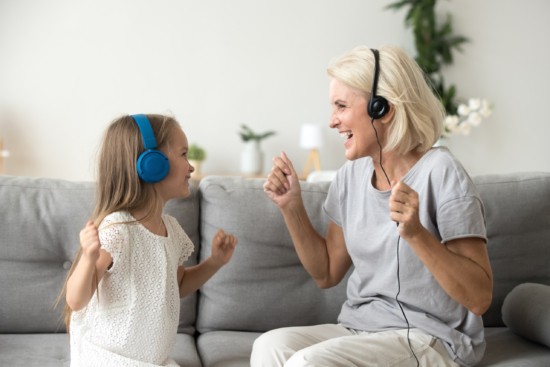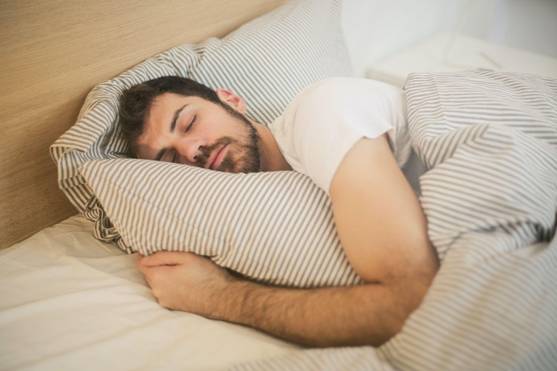
Table of Contents
Helping Your Anxious Child
Childhood anxiety is now widely considered by experts to be amongst the most important mental health issues of our time. As a matter of fact, many child psychologists believe that 20 out of every 100 kids will almost certainly experience at least some kind of high-level anxiety around the time they hit their adolescence. While many, if not most kids tend to outlast these feelings but not all of them are able to do so, as such. If left untreated it can cause a lot of problems later on in life. However, it doesn’t have to be this way at all. Not when you take control of the situation and start helping your kids deal with their anxiety-related challenges. Let us see how you can go about doing that:
Anxiety is basically a fear of an uncertain future
The main thing about childhood anxiety is that it almost inevitably involves a certain level of fear and perception about danger. It thrives on the intrinsic unpredictability of an undefined future. The mind of most high-strung and anxious children is more often than not, on a continuous lookout for some vaguely defined future threat. This means that it is perennially locked in a state of unceasing and exhausting vigilance.
Anxiety Disorder or Just Anxiety
It is perfectly normal for just about everyone to feel a bit anxious at some point in time. Anxiety and fear are primarily protective reflexes that stop us from doing something really rash. It can also act as a form of motivation. For example, a child may be concerned about doing well in an examination. In this case, such a child may become motivated to perform well. Alternately, such children might become so scared they lose their concentration and could not even function properly. Here, the differentiating factor is the fear that hinders the child from performing at his or her best.
If your child starts actively avoiding exams and pretends to become sick on exam days or throws a tantrum or just plain refuses to go to school for no conceivable reason, this means only one thing. Their anxiety has started interfering with their day-to-day life. In fact, avoidance is a classic hallmark of most childhood anxiety disorders. This is why it is very important to separate healthy fear (that might keep the child away from behaving like superman by trying to fly out of a second-story window) from anxiety.
1. Calm the child down
If the child is having a full-on anxiety-induced panic attack, no amount of shouting and screaming will solve the issue. Anxious children can become cold and clammy and they might even start throwing up. At this point in time their body has taken over and they are not listening to you at all. You should ask them to take deep breaths until they are able to regain control.
2. Listen to them
Once they have calmed down sufficiently enough to listen to you, talk to them softly and gently. Under no account should you belittle their fears. This is extremely important. If you start ridiculing them, they will never trust you again. If they say there is a big hairy monster under the closet, believe them. In fact, take a flashlight and turn the closet upside down so that they can see there is no monster. This way, they will know you believe them and they will trust you and call you whenever they feel anxious. Best of all, you have shown them that there really is nothing to fear but fear itself.
3. Express positive and realistic expectations
The way you can help your child is by being confident in what they are capable of doing. You don’t need to promise that their fears won’t be an issue, but it’s important for a parent or teacher alike -to have realistic expectations with kids so those anxieties aren’t too overwhelming when faced head-on. By letting them know that as time goes on the anxiety levels might feel less intense and things get easier- this gives children confidence.
4. Taking care of other factors
A child’s health is their wealth. If you want them to be happy and relaxed then it’s important that they have a healthy everyday life! More time spent on sleep for example will help soothe the anxiousness in your little one which would lead him/her into spending less energy worrying about all sorts of things, while simultaneously sleep might improve their focus overall.
Sometimes there are physiological reasons behind their anxiety and panic attacks. This means that you can also use vitamins to help your kids in feeling better and calmer. For example, magnesium gummies promote health and also have many nutritious benefits. You can use them to take care of any deficiencies in their diet.
Don’t forget to let them know the importance of keeping hydrated and drinking water as much as possible. Water is one of the crucial elements to keep healthy. Regular physical exercise can also help to reduce the symptoms of anxiety, however, they don’t need a rigorous workout routine, just walking or gentle yoga works too!
5. Encourage them to do something that helps them to feel calmer
Encourage them to do something that helps ease their stress. This could be running, walking, or listening to music; painting a picture, and coloring! You can also encourage them to write in their journal about what they are feeling. They can also spend time with their friends and people that make them feel safe and comfortable.
A soothing environment is important for children who are feeling anxious. It could be their own room, their grandparent’s place, or a favorite place in nature. Identifying these specific places could make it possible for you to know more about how exactly you can help, especially in situations when the anxiety gets the worst of them.
Conclusion
Childhood anxiety is very real and very painful for both parents and their kids. However, you can control it by calming the kid down and listening patiently to anything they might have to say. You might give them magnesium gummies to supplement their diet.




